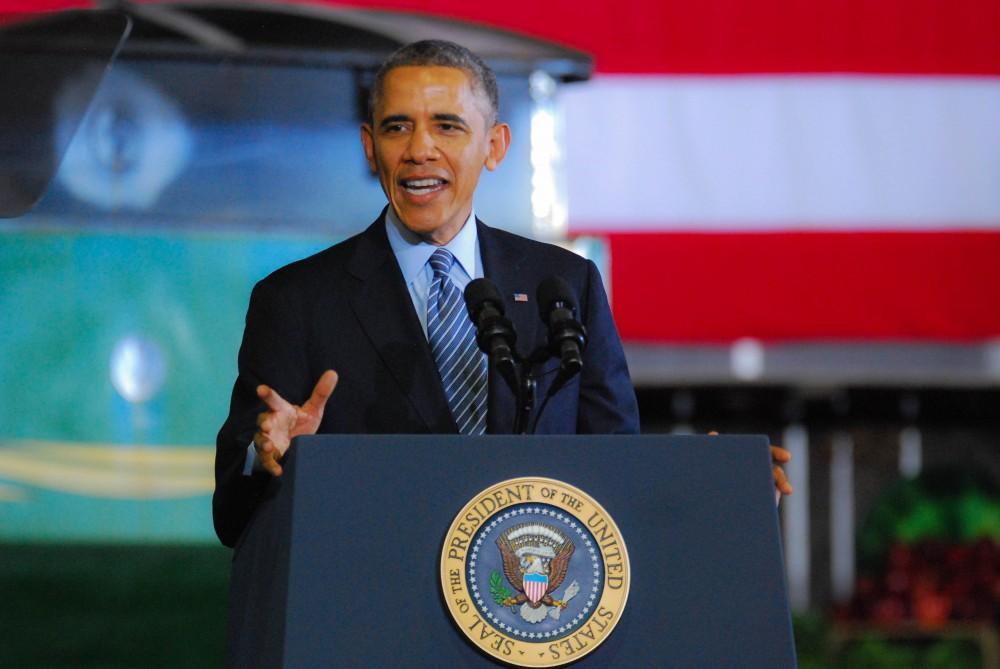President Obama signs farm bill at MSU

GVL / Hannah Mico. President Obama visited the McPhil Center at Michigan State University on Friday afternoon to sign the 2014 Farm Bill into law, creating legisltion that will insure farmers’ crops and help create a more innovative farming industry.
Feb 10, 2014
On a stage surrounded by hay bales and a John Deere tractor, President Barack Obama signed the Agriculture Act of 2014 into law on Friday at Michigan State University.
Agriculture is the second-largest industry in Michigan, and it supports nearly one in four jobs in the state.
The farm bill, written by Sen. Debbie Stabenow, D-Mich., will benefit farmers throughout the country, Obama said.
Stabenow agreed, calling it a reform bill. “It contains the greatest reforms in agriculture programs in decades,” she said.
It was a private event, but a group of about 500 farmers, students and local officials were invited to watch Obama sign the farm bill.
The five-year measure will end direct payment subsidies to farmers, which have allowed people to receive benefits whether they were planting crops or not. Stabenow said fixing this loophole, along with other cuts and investments outlined in the bill, will reduce the defecit by $23.3 billion.
The farm bill will replace direct payment subsidies with crop insurance that will extend to “specialty crops,” such as cherries, apples, blueberries and asparagus.
“Despite its name, the farm bill is not just about helping farmers,” Obama said. “It’s a jobs bill, an innovation bill, an infrastructure bill, a research bill, a conservation bill.”
Obama jokingly called the bill a Swiss Army knife and compared it to baseball player Mike Trout.
“It’s somebody who’s got a lot of tools,” he said. “It multitasks. It’s creating more good jobs, gives more Americans a shot at opportunity.”
Stabenow agreed, and went further, calling it an export, research, energy, economic development, conservation, nutrition and deficit reduction bill.
Despite its accolades, the bi-partisan bill took three years to get through Congress. Most of the bill’s $100 billion per year cost is for the politically controversial food stamp program.
Conservatives wanted to see larger cuts made than the $8 billion that was approved. Originally they had fought for a $40 billion reduction. Republican lawmakers were invited to attend the bill signing, but none accepted the invitation.
More than half of all American adults experience poverty at some point in their lives, Obama said. He added, “They’re not looking for a handout, these folks, they’re looking for a hand up.”
He noted that 85 percent of rural counties in the U.S. are experiencing “persistent poverty.”
“There are a lot of big producers who are doing really well, but there are even more small farms, family farms, where folks are just scratching out a living and increasingly vulnerable to difficulties,” Obama said.
In an effort to help these rural areas, Obama announced the launch of the “Made in Rural America” initiative. The program will work to help rural businesses expand, hire and sell more products.
“We’ve got great products here that need to be sold, and we can do even more to sell around the world,” he said.





















